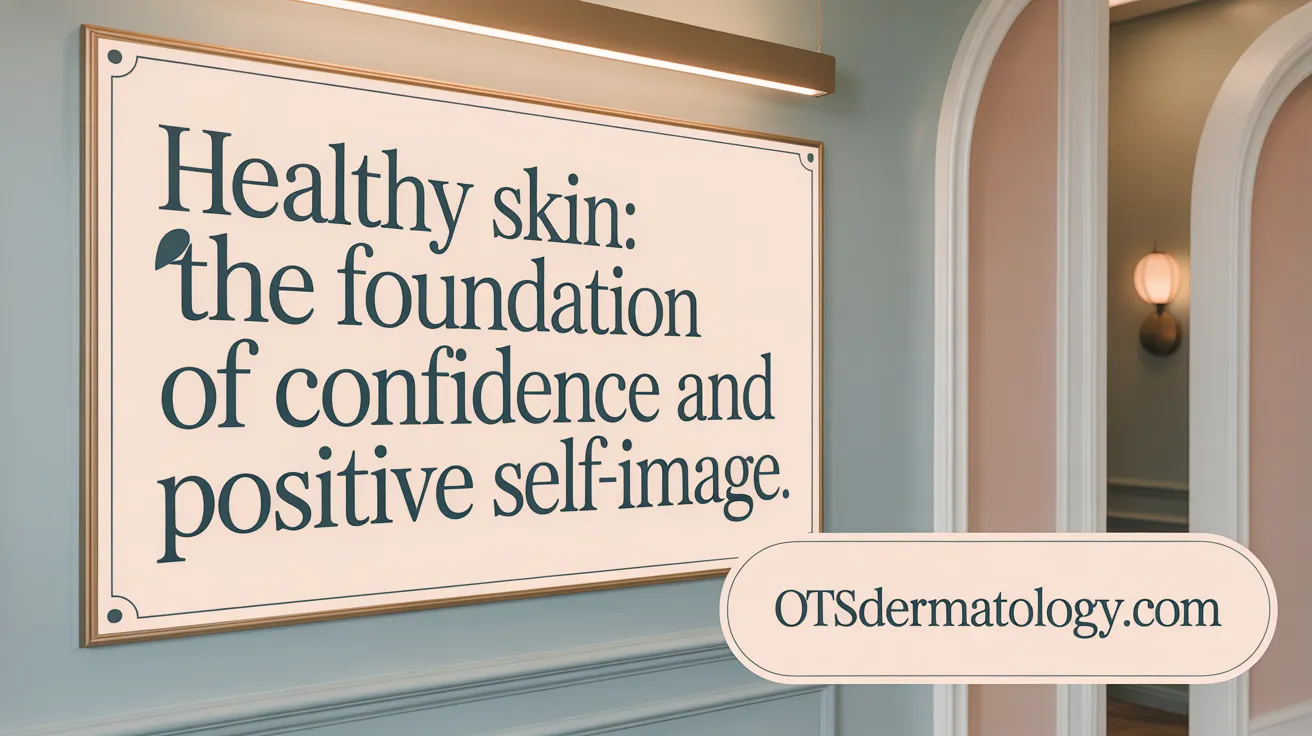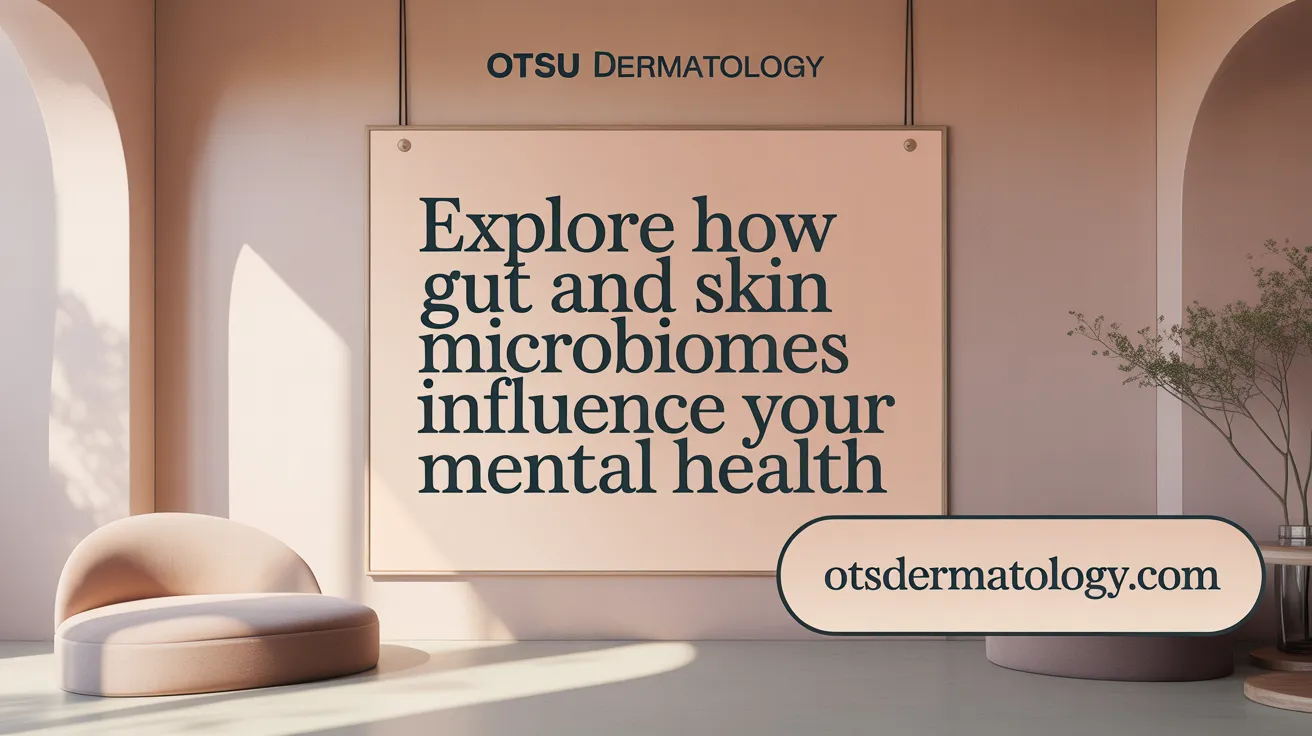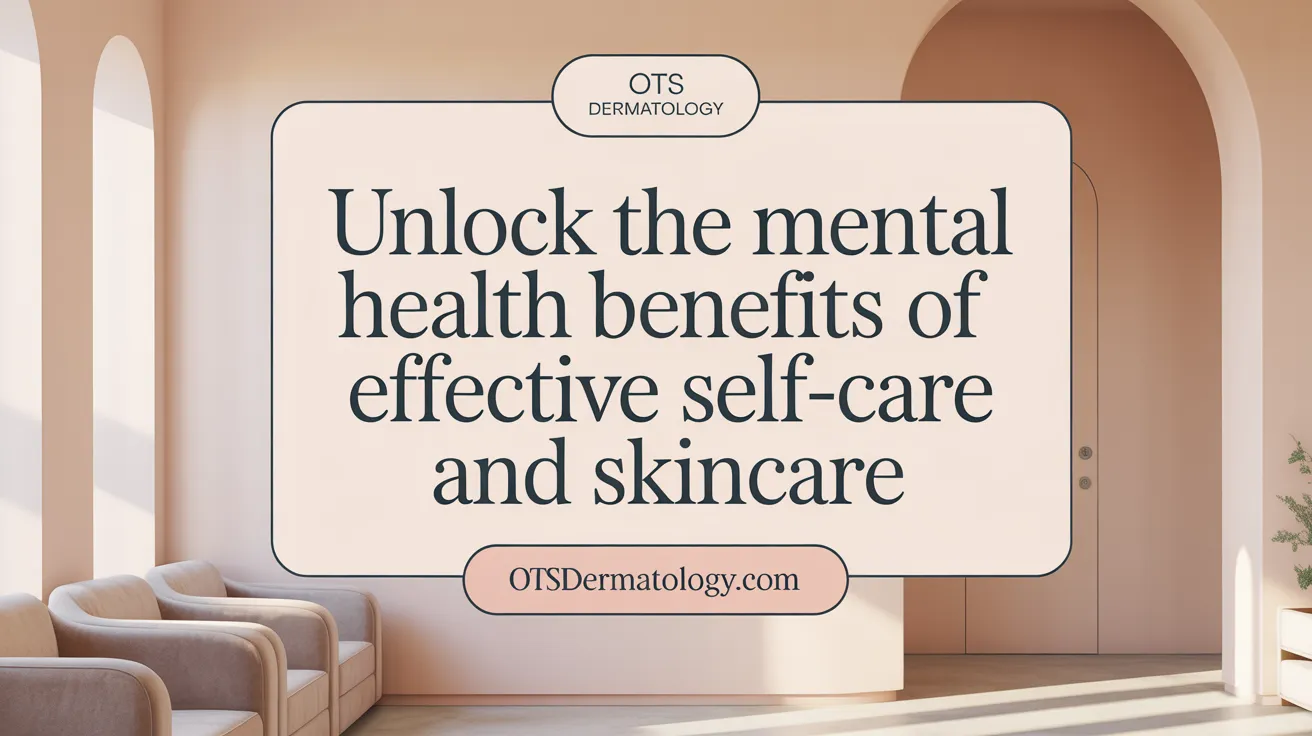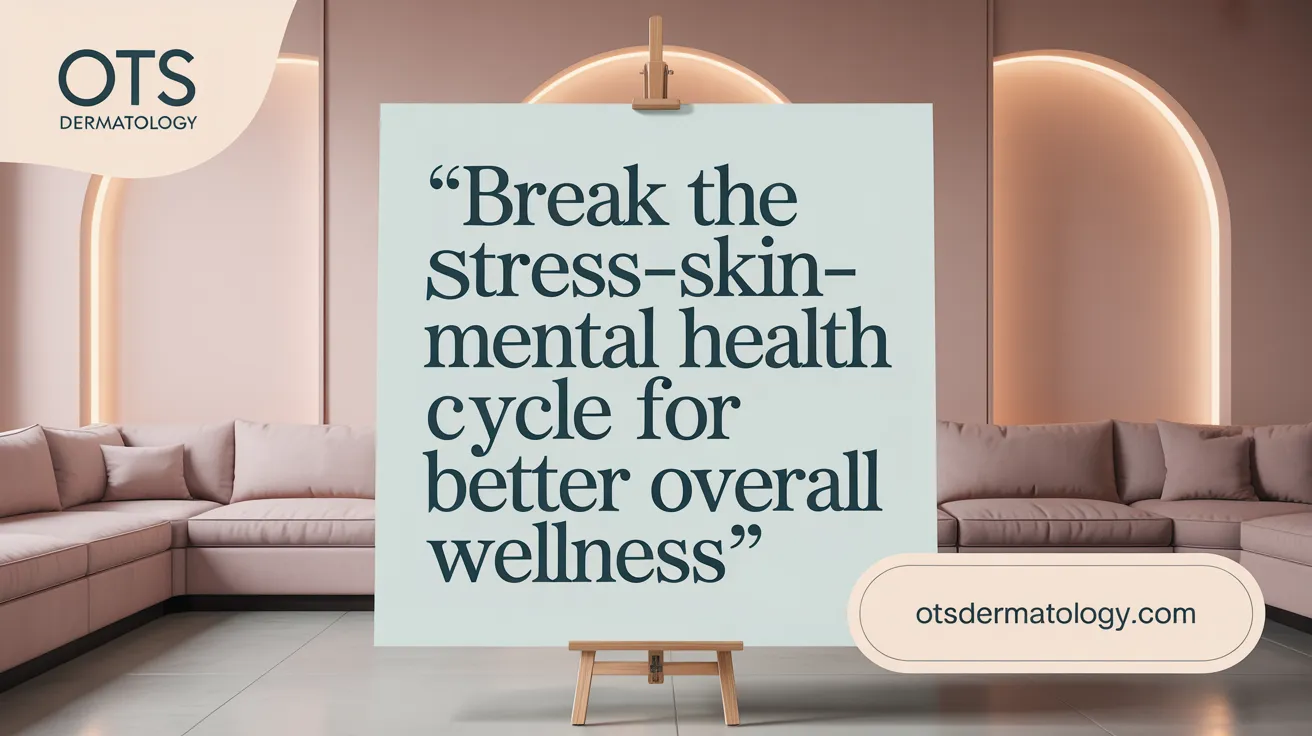The Skin-Confidence Connection
Across cultures and generations, healthy skin has been synonymous with beauty and vitality. Yet beyond aesthetics, the state of our skin profoundly influences our psychological health and self-esteem. This article explores the intricate relationship between skin health and mental well-being, revealing how caring for our skin can boost confidence, reduce stress, and foster a positive self-image.
Skin Health as a Foundation for Self-Esteem

How does healthy skin influence self-confidence and mental well-being?
Healthy skin plays a crucial role in boosting self-esteem with healthy skin. When individuals look and feel good about their skin, their confidence naturally improves. This boost in self-confidence can reduce anxiety through skin health that often arise from issues like acne, scars, or pigmentation. Moreover, achieving and maintaining clear, healthy skin enhances social interactions, allowing people to connect more freely and positively with others.
Engaging in skincare routines serves as a powerful form of skincare as self-care for mental health. This dedicated time promotes self-love and reinforces a positive mental state. Skincare rituals also help alleviate stress and foster emotional well-being, enriching both body and mind (mental health benefits of skin care).
What psychological impacts result from visible skin conditions?
Visible skin conditions—including acne, psoriasis, and eczema—can have substantial negative psychological effects. People affected often experience Self-esteem effects of acne, which can lead to social anxiety in young people with skin conditions. The persistent nature of these disorders may negatively impact quality of life and diminish perceived social support (psychodermatology field).
These psychological challenges sometimes escalate into anxiety and depression, making the management of both skin and mental health essential for well-being (Psychodermatology and mental health).
Role of skin appearance in social interactions and body image
Confidence in one’s skin appearance significantly improves social interactions. Healthy skin reduces self-consciousness, enabling individuals to engage in social settings with greater ease (Impact of skin health on confidence). Additionally, maintaining healthy skin contributes to a positive body image that supports overall self-esteem and protects against disorders related to body perception.
Self-care practices enhancing self-worth
Prioritizing skincare routines is a practical form of self-care that mental health benefits of skincare. The sensory engagement—such as the tactile and fragrant aspects of skincare—promotes relaxation and uplifted mood (psychological benefits of skincare routines). Treating skin with intention sends a powerful message of self-kindness, nurturing both the skin and the mind (skin-care routine benefits.
The Gut-Skin-Brain Axis: How Skincare Impacts Mental Health

How do skin and gut health influence mental well-being?
The gut and skin both host complex microbiomes essential for overall health. The gut microbiome supports digestion, immune function, and mental health by producing key neurotransmitters like serotonin that help regulate mood. When this balance is disturbed—a condition called dysbiosis—it can trigger inflammatory skin issues such as acne, eczema, or psoriasis, along with mental health problems including anxiety and depression (gut microbiome and mental health, impact of mental health on skin conditions).
Similarly, the skin microbiome protects against pathogens and maintains skin barrier health. An imbalance here leads to skin inflammation that can increase systemic inflammation, impacting the gut and brain negatively. Topical skincare products containing probiotics and prebiotics help maintain the skin’s healthy microbial balance, while anti-inflammatory ingredients like niacinamide and ceramides soothe skin irritation. By reducing skin inflammation, these products support immune modulation and may alleviate mental health symptoms related to systemic inflammation (skin microbiome and immune function, skin-brain axis and mental health).
What psychological benefits arise from skincare routines beyond physical effects?
Skincare routines offer more than surface improvements; they provide meaningful psychological benefits. The sensory experience of applying skincare—through soft touch, gentle massage, and calming fragrances—promotes relaxation and mindfulness. These self-care moments trigger the release of neurotransmitters such as oxytocin and serotonin, which uplift mood and reduce feelings of stress and anxiety (skincare as self-care for mental health, mental health benefits of skincare).
Routine skincare also builds self-esteem by enhancing skin appearance. Feeling good about one’s skin boosts confidence, which positively influences mental health and strengthens resilience to stress (boosting self-esteem with healthy skin, boost your self esteem with skincare). Moreover, regular skincare can act as a grounding, meditative practice that centers the mind, promoting inner calm and emotional well-being (meditation benefits for skin, skin-care and emotional stability.
By integrating gut health, skin care, and psychological self-care, individuals can support the gut-skin-brain axis and foster improved mental wellness (gut-skin-brain axis management, psychological benefits of healthy skin.
The Science Behind Self-Care: Skincare as a Mental Health Tool

How does a skincare routine promote psychological relaxation?
Facial skincare sessions lead to significant physiological relaxation, with measurable increases in brain, heart, respiratory, and muscle relaxation compared to simply resting. These sessions also evoke more positive emotions, enhancing overall well-being. The process of applying skincare mindfully—attuning to the textures and fragrances—serves as a form of meditation, helping ground individuals in the present moment and releasing stress and tension (Physiological relaxation from facial skincare, Mind-skin connection, Skincare as self-care).
What skincare practices improve both skin health and self-esteem?
Maintaining a consistent routine using cleansers, moisturizers, sunscreens, and specific treatments like retinoids and antioxidants supports healthy skin by removing toxins and slowing signs of aging such as wrinkles and elasticity loss. Daily use of broad-spectrum sunscreen protects against UV radiation, lowering risks of skin cancer and premature aging. Professional dermatological treatments including facials and microdermabrasion further enhance skin radiance and address uneven tone, boosting confidence and providing a sense of control over one's appearance (Skin Care Routine Benefits, Boosting Self Esteem with Skin Care, Skin care treatments, Simple Skin Care Routine, Skin-care routine benefits.
Why are protective skincare ingredients important?
Ingredients like antioxidants (vitamin C, E), niacinamide, ceramides, and sunscreen components (zinc oxide, titanium dioxide) help shield skin from environmental damage and inflammation. These prevent breakdown of collagen and maintain the skin barrier, which is essential for both healthy skin and a youthful appearance. By reducing inflammation and oxidative stress, these ingredients play a pivotal role in supporting not only skin health but also mental well-being (Gut microbiome and mental health, Importance of skin care in Winnipeg, Skin-brain axis and mental health).
In summary, a well-rounded skincare routine functions as a self-care ritual that fosters mindfulness, induces relaxation, and reinforces self-esteem through visible skin improvements and protection. This interconnection highlights skincare as a powerful tool for enhancing mental health and emotional resilience (Mental health benefits of skincare, Psychological benefits of healthy skin, Skin-brain axis and mental health.
Stress, Skin, and Mental Health: Breaking the Vicious Cycle

How does stress affect skin health and appearance?
Psychological stress triggers the release of hormones such as cortisol and neuropeptides, which elevate skin inflammation and increase oil production. This aggravates common skin conditions including acne, eczema, psoriasis, and rosacea. Chronic stress impairs the skin's barrier by reducing lipid synthesis and epidermal proliferation, leading to dryness, sensitivity, and slower wound healing.
Moreover, prolonged stress breaks down collagen and elastin fibers, accelerating premature skin aging seen as wrinkles and loss of elasticity. It also decreases blood flow to the skin, causing a dull and tired complexion. These skin issues often worsen mental strain by negatively impacting self-esteem and body image, creating a vicious cycle.
What interventions can help mitigate the negative impact of stress on skin and mental health?
Effective management starts with stress reduction techniques such as meditation, mindfulness, and relaxation exercises, which lower cortisol levels and decrease skin inflammation. Psychotherapy and cognitive-behavioral strategies provide psychological support to patients, improving both mental well-being and skin conditions.
A holistic approach includes integrating a balanced diet rich in antioxidants, regular physical activity, and tailored skincare routines that strengthen the skin barrier and reduce inflammation. Psychodermatology, a multidisciplinary field, combines dermatological treatment with mental health care to address the interconnected nature of these conditions, enhancing treatment outcomes and quality of life.
By adopting these strategies, individuals can break the harmful cycle of stress-related skin problems and improve both their skin health and psychological resilience.
Building Confidence Through Healthy Skin and Psychological Care

What is the Role of Psychodermatology in Treatment?
Psychodermatology bridges the gap between skin and mental health, recognizing that skin conditions often have psychological components. This field addresses not only the physical symptoms but also the emotional distress linked with visible skin disorders like psoriasis, eczema, and acne. Over one-third of dermatology patients experience psychological concerns such as low self-esteem and social isolation. Psychodermatologists implement behavioral therapies, cognitive strategies, and medical treatments together to target both skin health and mental wellness. This holistic approach helps patients better manage their condition, reduces stigma, and improves their overall quality of life.
Why Is Psychological Support Important Alongside Dermatological Treatment?
Skin problems can be socially visible and sometimes stigmatizing, leading to anxiety, depression, and lowered self-worth. Psychological distress can persist even after skin improvements, which is why integrating psychological support with dermatological care is vital. Therapy and support groups help patients develop coping skills, foster acceptance of their condition, and reduce social anxiety. This combined care improves treatment adherence and durability of results, ultimately promoting emotional resilience and a fulfilling life despite ongoing symptoms. For more details, see Psychological impact of skin disorders.
How Does Improved Skin Appearance Affect Social Confidence and Lifestyle?
Achieving clearer, healthier skin positively influences self-esteem and diminishes anxiety related to one's looks. This boost in confidence enhances social interactions, making people feel more at ease and willing to engage with others. Feeling good in one’s skin also motivates maintaining skincare routines and adopting healthier lifestyle choices. Cosmetic dermatology procedures and professional skin treatments often further empower individuals, stimulating emotional well-being and encouraging pursuit of personal goals. Learn more about the link between physical appearance and confidence.
What Are the Social and Emotional Benefits of Improved Skin Appearance?
Enhanced skin health can dramatically improve body image and self-perception, contributing to happiness and reduced feelings of self-consciousness. These psychological benefits help break negative cycles of social withdrawal, alleviate feelings of embarrassment, and foster a positive identity. Individuals report better relationships and greater satisfaction in both social and professional spheres after improving their skin condition, reinforcing the link between healthy skin and emotional health.
Embracing Healthy Skin for Holistic Well-Being
Healthy skin is far more than a cosmetic asset; it is deeply entwined with our psychological health and confidence. Through mindful skincare practices, stress management, and multidisciplinary care approaches like psychodermatology, individuals can break cycles of distress and cultivate empowered self-esteem. Prioritizing skin health fosters social connection, mental resilience, and overall well-being, encouraging us all to embrace the profound psychological impact of glowing, healthy skin.
